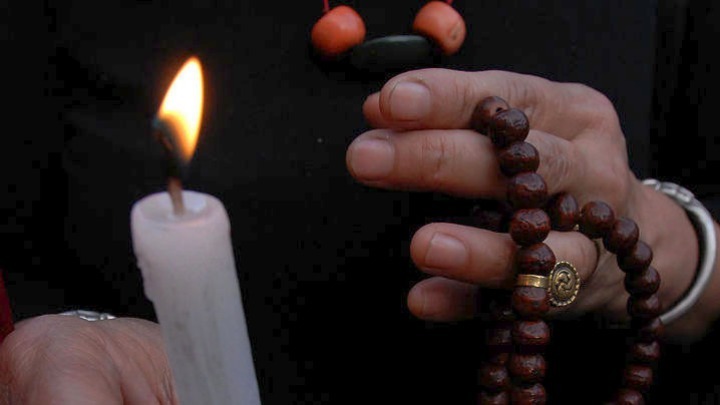“When the disease spread, the saints were happy because it was a great opportunity for them to get rich spiritually.”
Saint Isaac the Syrian
“We should deal with our sorrows and face diseases with forbearance and gratitude to God.”
Saint John the Dwarf
“We benefit from the diseases five times more than any other virtue.”
Saint Irene Chrysovolantou of Cappadocia
“When the body is tested, then the soul is sanctified.”
Elder Paisios
“Like the candle, if it is not warmed and softened too much, it cannot accept the seal we put on it, so man, if not tested with effort and disease, he cannot accept the seal of God’s virtue.
That is why the Lord says to Saint Paul the Apostle: “My grace is sufficient for you, for my power is made perfect in weakness” (2 Corinthians 12:9). However, Saint Paul boasts of himself with the following words: “Therefore I will boast all the more gladly about my weaknesses, so that Christ’s power may rest on me” (ibid.).
And by saying “weaknesses” he means the attacks of the enemies of the Cross of Christ, which were constantly made on him and on all the saints at that time so that he would not boast, as he says, of these surpassingly great revelations (2 Corinthians 12:7), but rather he would remain humble in the state of perfection, and solemnly keep the gift of God with frequent humiliations.
But when we say “diseases,” we mean bad thoughts and physical illnesses. The bodies of the saints who fought against sin were subjected to harsh tortures and various other afflictions were far superior to the passions that affected human nature because of sin.
But now, as the peace of the Churches increases with the grace of the Lord, the devout fighters must be tested in their body with successive illnesses and in their soul with bad thoughts. This happens in order to be free from all vainglory and pride, and to be able, as I said, to receive in their hearts, with much humility, the seal of divine beauty, according to the saint who says: “Let the light of your face shine on us, O Lord.” (Psalm 4:7).
The disease humiliates the body and the humiliated body humiliates the soul!
We must, therefore, obey the Lord’s will. In this way, the successive illnesses and the war against bad thoughts will be considered a second martyrdom. You see, the one who then told those holy martyrs, through the lawless rulers, to renounce Christ and embrace worldly glory was the devil, the one who says the same now to the servants of God.
He who then tormented the bodies of the saints and abused the distinguished teachers (of the Gospel), through those who served those bad thoughts, he himself still inflicts unbearable pain onto the pious confessors with many insults and humiliations. That is why we must also face with steadfastness and patience the testimony of our conscience before God, as David says: “I waited patiently for the Lord; he turned to me and heard my cry” (Psalm 39:2)”.
